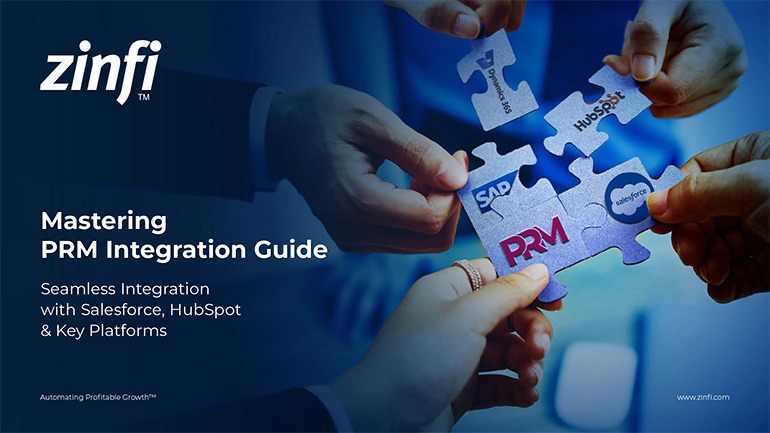Glossary - How to - Channel Partner Engagement
How to Engage a Channel Partner?
Introduction
Engaging a channel partner is essential for businesses looking to expand their reach and increase sales through indirect sales channels. Channel partner engagement refers to the strategies and actions taken by vendors to foster a productive and mutually beneficial relationship with their partners. Successful engagement can lead to higher sales, improved brand loyalty, and a competitive market advantage.
In Partner Relationship Management (PRM), channel partner engagement ensures seamless collaboration. Businesses that invest in automation and strategic engagement efforts tend to see better alignment between their objectives and partner performance. PRM platforms help manage partner programs effectively by offering training resources, marketing materials, and performance analytics.
Develop a Strong Onboarding Process:
A well-structured onboarding process is the foundation of effective channel partner engagement. It sets expectations, provides essential resources, and ensures that partners understand the brand’s values and objectives.
- Provide a structured partner welcome kit with detailed guidelines.
- Implement training modules and certification programs to educate partners.
- Use PRM platforms to automate onboarding and track progress.
- Establish a dedicated partner success manager for support.
Maintain Consistent and Transparent Communication
Effective communication fosters trust and alignment between vendors and channel partners.
- Schedule regular check-ins and meetings to discuss goals and challenges.
- Offer real-time access to sales and marketing materials via PRM portals.
- Use newsletters and webinars to keep partners updated on industry trends.
- Encourage feedback and collaboration through partner advisory boards.
Provide Incentives and Rewards
A well-structured incentive program motivates channel partners to prioritize your brand over competitors.
- Implement tiered reward structures based on performance.
- Offer financial incentives such as discounts, rebates, or bonuses.
- Recognize top performers through partner awards and exclusive events.
- Provide co-marketing funds to support joint promotional efforts.
Deliver Comprehensive Sales and Marketing Support
Equipping channel partners with the right tools and resources ensures their success in selling your products.
- Provide customized sales enablement materials tailored to different segments.
- Offer lead-sharing programs to drive partner-generated revenue.
- Develop joint go-to-market strategies for better alignment.
- Conduct marketing automation training to help partners leverage digital tools.
Leverage Partner Relationship Management (PRM) Platforms
A PRM system streamlines partner engagement, automates processes, and enhances collaboration.
- Use analytics and performance tracking to measure partner success.
- Provide a centralized partner portal for easy access to resources.
- Automate lead distribution and deal registration processes.
- Integrate with CRM tools to align partner and internal sales efforts.
Summary of Key Takeaways:
To effectively engage channel partners, businesses must establish structured onboarding, maintain transparent communication, offer compelling incentives, provide comprehensive sales and marketing support, and leverage PRM platforms. These strategies enhance partner collaboration and drive revenue growth.
Key Examples:
- Automotive Manufacturing: Channel partners in automotive manufacturing require extensive technical training and access to inventory data. Engaging them through certification programs and exclusive dealership promotions ensures alignment with brand strategies.
- Consumer Electronics: Retailers and resellers benefit from co-branding opportunities and performance-based incentives. Providing real-time access to product updates via a PRM system enhances engagement.
- Energy Production: Energy sector partners rely on joint marketing efforts and access to sustainability incentives. Offering comprehensive training on new energy technologies fosters better relationships.
- Financial Services: Engagement in financial services often involves compliance training and customized partner portals. Providing partners with co-branded digital content helps maintain regulatory standards.
- Food and Beverage: Distributors and suppliers in the food industry benefit from trade promotion programs and automated order tracking. A loyalty-based incentive system strengthens long-term partnerships.
- Healthcare Services: Medical device and pharmaceutical partners require strict compliance training and access to educational webinars. Regular engagement through certifications ensures compliance and product knowledge.
- Information Technology: IT channel partners rely on co-managed marketing campaigns and cloud-based PRM solutions for seamless collaboration. Enabling partners with automated deal registration enhances engagement.
- Pharmaceutical Development: Pharma companies engage distributors through exclusive product training and regulatory compliance incentives. Providing early access to new formulations helps strengthen partner loyalty.
- Retail Industry: Retailers need personalized promotions and real-time stock availability to stay engaged. Implementing a data-driven PRM platform supports better sales tracking.
- Telecommunications: Telecom partners benefit from revenue-sharing models and technical support programs. A partner-exclusive knowledge base enhances engagement.
Conclusion:
Engaging channel partners is critical in Partner Relationship Management (PRM). Implementing structured onboarding, fostering open communication, offering attractive incentives, providing sales and marketing support, and utilizing PRM platforms lead to a more successful partner ecosystem. By tailoring engagement strategies to specific industries, businesses can strengthen partnerships, drive sales, and gain a competitive edge in the market.
Associated Keywords:
- Channel Partner Engagement Strategies
- Best Practices for Engaging Channel Partners
- How To Build a Strong Channel Partner Relationship















